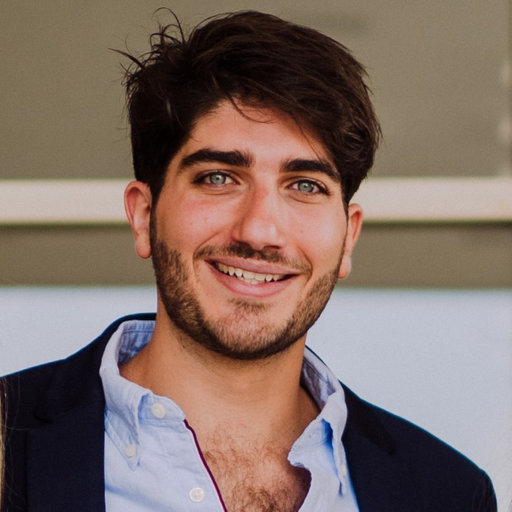Salomón Wollenstein-Betech Lunch and Learn Recap

At the Lunch and Learn on October 20th, 5th year Ph.D. student, Salomón Wollenstein-Betech, met with his peers to share his insights from interning at MIT-IBM Watson AI Lab (2019), PROS software company (2020), and Amazon Inc (2021).
Wollenstein-Betech’s specific area of study is optimization and control of intelligent transportation systems. At IBM, he worked on developing models to enhance the interpretability of black-box intelligent agents. At PROS, he worked on dynamically pricing airline tickets for the business and economy class seats based on seat availability and the flight’s departure date. Finally at Amazon, he helped design and optimize an automated hiring process for gig-economy flexible drivers for the Amazon Flex business.
Wollenstein-Betech highlighted three key takeaways from his internship experiences. First, being open to different internship opportunities. Even if the internship doesn’t perfectly align to your research interests, it will provide new skills and broaden your job perspectives. While working at IBM, Wollenstein-Betech was able to improve his coding skills by observing and learning from his peers. Moreover, he was exposed to a different research community where he successfully completed two projects.
His second piece of advice was to be visible and expand your professional network while at the internship. Forming connections increases the likelihood that the company will offer a full-time job, and it may also increase future job opportunities in other companies (given that people in the tech industry often move jobs) . Wollenstein-Betech shared an anecdote about completing his final presentation at Amazon.
“If people already know you before your final presentation, they are more likely to be engaged during your talk and to be familiar with your work. This increases your chances of getting a full-time position” Wollenstein-Betech said.
The third main takeaway was to be aware of the amount of time internships can take up. Wollenstein-Betech explained it as a tradeoff– he made the decision to gain nine months of professional experience instead of using those months to progress on his doctoral research and dissertation. He emphasized on being aware that doing (many) internships could delay your graduation date. However, hands-on experience can show how jobs differ from academia and guide you on where to work after the completion of the program.
In Wollenstein-Betech’s case, his internship experiences were more collaborative compared to his research at Boston University. He described the community as more goal- and team-oriented than his experience in the academic environment. In addition, Wollenstein-Betech highly recommended travelling to the company’s office when doing the internship.
“Try to get in-person internships. If you get offered a job, it’s good to know if you’ll like the area and want to live there,” Wollenstein-Betech said after living in Seattle for three months working with Amazon during the pandemic.
Christos Cassandras, Distinguished Professor of Engineering, Head, Division of Systems Engineering, Professor of Electrical and Computer Engineering and co-founder of CISE, also had some insights to share. He said that most graduates start off their professional career at large companies because it’s safe. However, his experience with previous graduates has shown that it’s much harder to climb the ranks in large firms and it’s often not stimulating enough, causing people to leave and join smaller companies.
Wollenstein-Betech also offered tips for getting internships. When looking for internships, your academic advisor and other students are the best resources, he said. They can connect with alumni and know people themselves in industry. LinkedIn’s second-degree connections can also be helpful. He explained that sometimes you may not know someone at your target company. However, through LinkedIn, you can find someone close to you who knows people at the firm of interest.
After submitting an internship application, the primary goal is to get to the interview stage. In Wollenstein-Betech’s interviews at Amazon, he was asked to complete different optimization problems and to explain what he is researching at BU. He explained that having an open dialogue with the interviewer helps them see how the interviewee thinks about a problem and increases the odds of success.
In terms of timing, the best time to apply for summer internships is by the end of the fall semester. Wollenstein-Betech recommends anytime from October to December. Moreover, he recommends engaging in an internship towards the end of the Ph.D. program since the company is more likely to offer a job right after graduation.